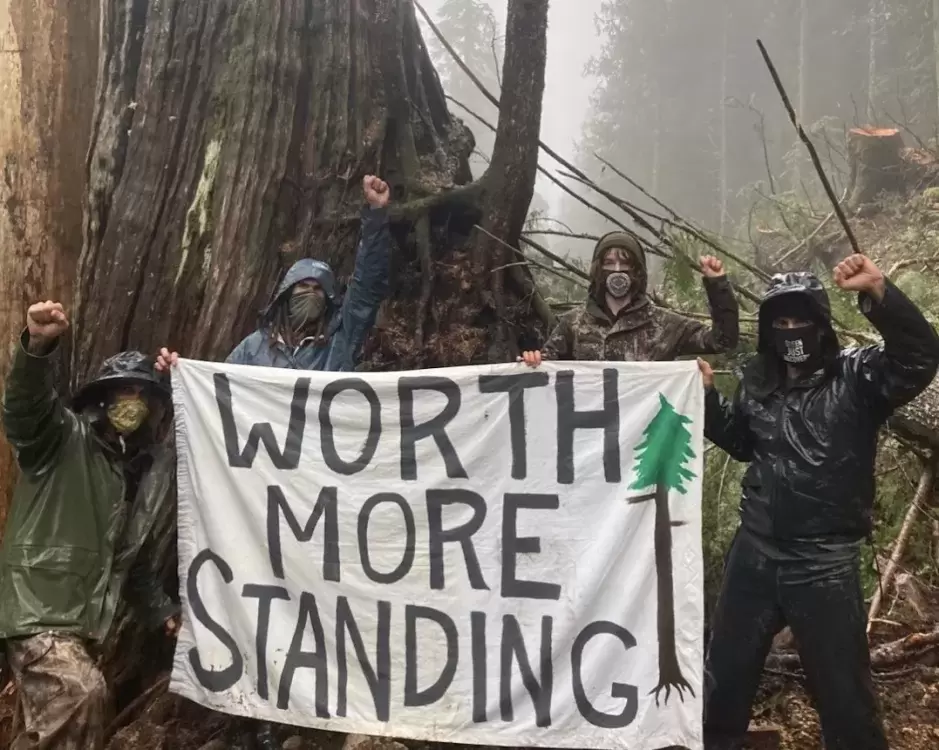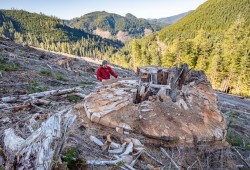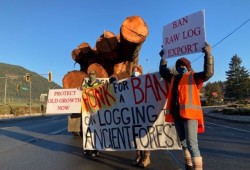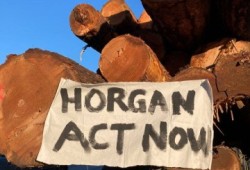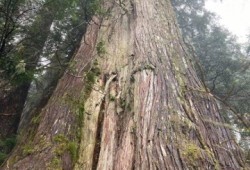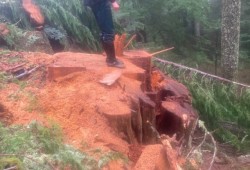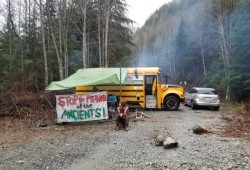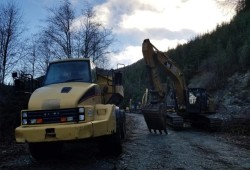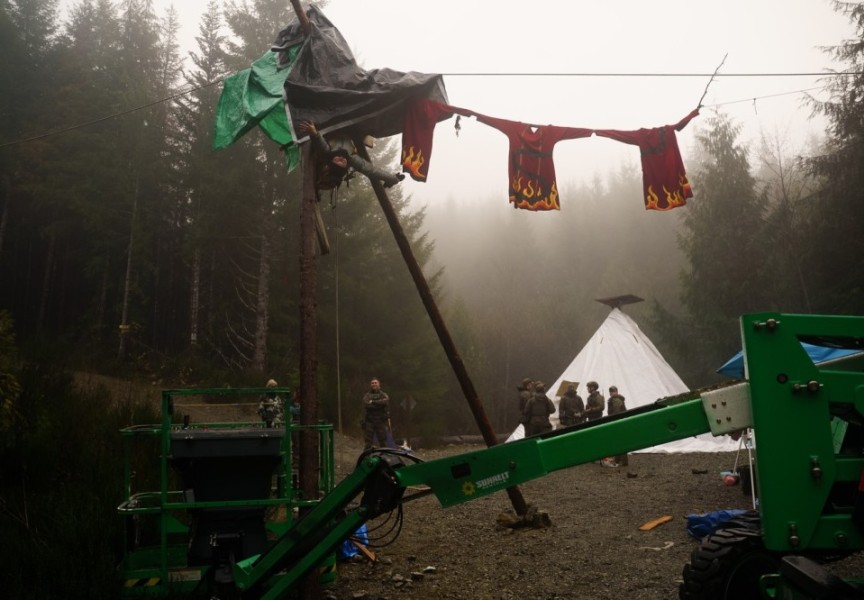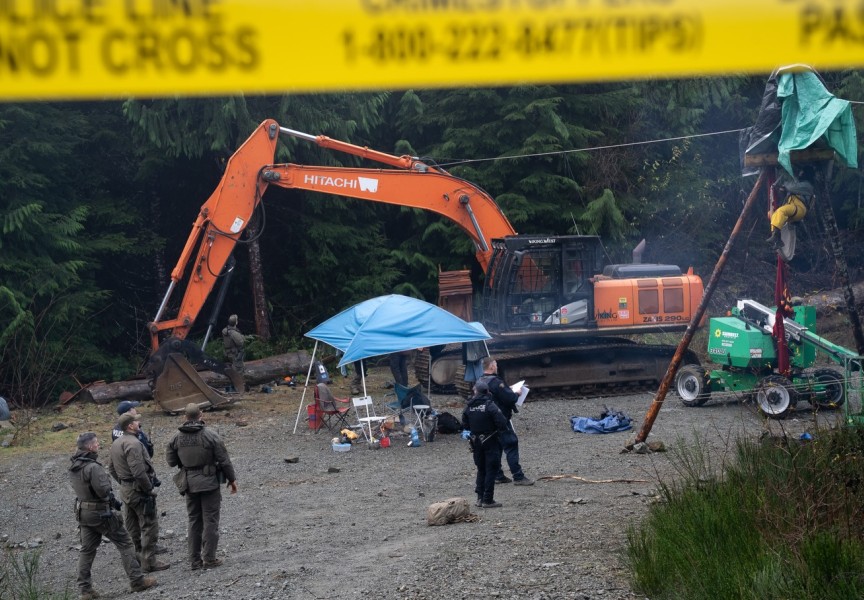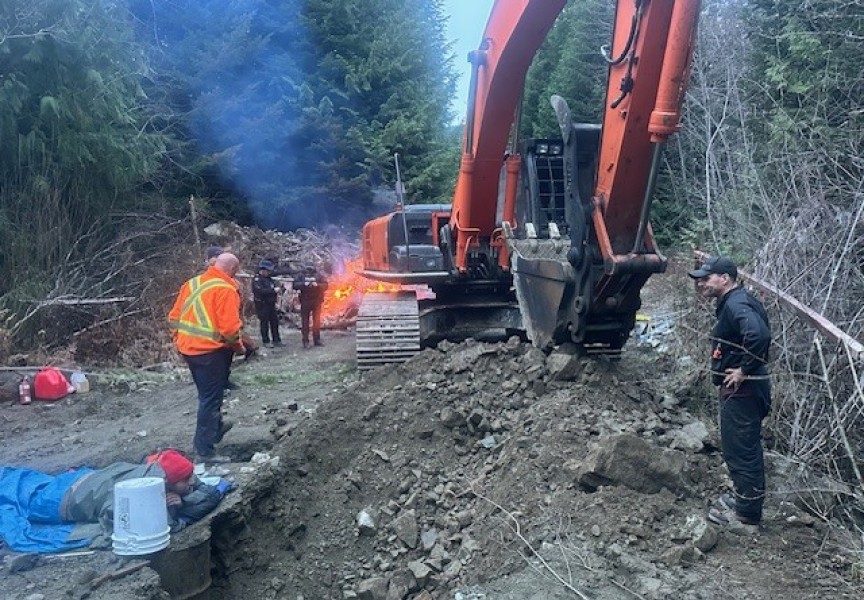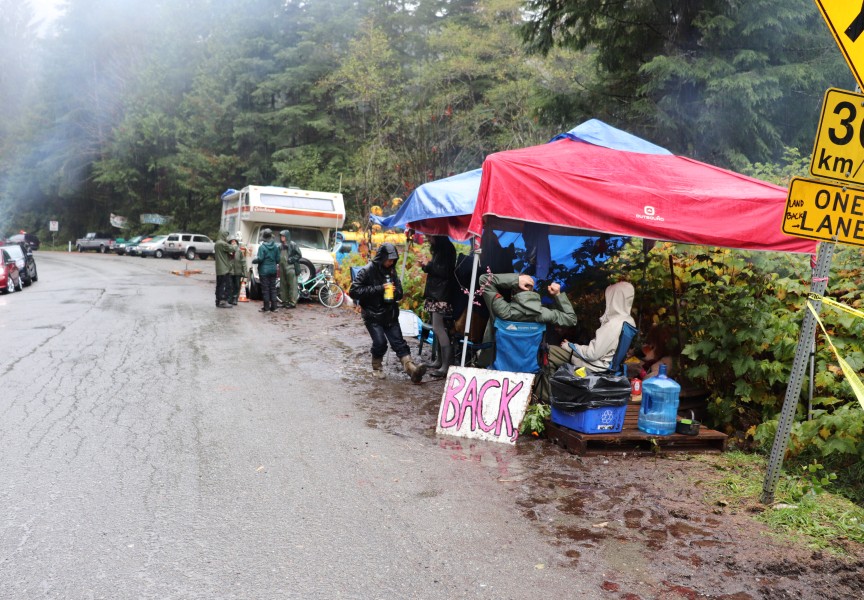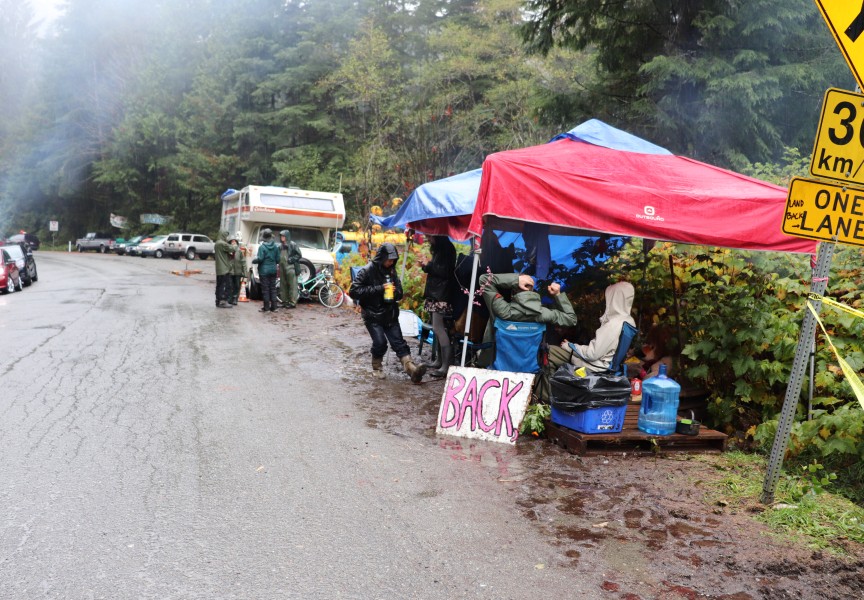Ancient cedar trees within Nuu-chah-nulth territory have become the focus of a battle between environmental groups and forestry operators.
In November the Ancient Forest Alliance reported that a grove containing massive Western red cedars east of Nitinaht Lake had been logged. Located in Ditidaht First Nation territory and part of the Caycuse River watershed, the trees were still standing when the environmental group previously visited the site in April.
Then on Dec. 2 a collective calling themselves the Rain4est Flying Squad blocked logging trucks north of Duncan in protest of harvesting just outside Carmanah-Walbran Provincial Park, which lies south of the Caycuse River. A vehicle carrying old-growth logs was held up for an hour by the demonstrators forcing a red light at a crosswalk. Other northbound logging trucks passed the blockage, but protestors stopped them for several hours before the vehicles reached a log sort in Ladysmith, according to the Rain4est Flying Squad.
Five days later the environmental group announced that a blockade was in place at Bugaboo Creek, north of Port Renfrew. Bobby Arbess, who was at the blockade when it was established on Dec. 7, said he could see that work to build a 2.5-kilometre road into the old-growth forest was underway, directed at red and yellow cedars up to 800 years in age. Bugaboo Creek is in in Pacheedaht territory, where several blockades have been in place to stop logging in the nearby Fairie Creek watershed since August. The First Nation has not taken a stance on this opposition to forestry in its territory.
The BC Forestry Alliance denounced the blockades, accusing the activity of harming Vancouver Island families that rely on the industry to sustain themselves.
“These workers and their communities are enduring difficult conditions, both economically and personally, to continue providing for their families during this pandemic and economic downturn,” said spokesperson Carl Sweet. “For these protesters to interfere with their livelihood during this time we find extremely distasteful.”
The provincial government has emphasized the importance of the forestry industry during the COVID-19 pandemic, declaring it an “essential service”.
“We are calling on the government to send a clear message to these protesters that they cannot be part of a process if they refuse to respect the needs of workers going about their business,” said Sweet. “The continued illegal blockades in Ladysmith and elsewhere must not be allowed to continue.”
The Ministry of Forest, Lands and Natural Resource Operations has admitted that the blockades are illegal. However, the provincial department is hesitant to take sides.
“Our government understands that for too long, there has been a divisive and patchwork approach to how old growth forests were managed in our province,” said ministry spokesperson Tyler Hooper.
These old-growth areas in southwestern Vancouver Island are within Tree Farm Licence 46, a section of Crown land currently licenced to the Teal Jones Group for harvesting and management. Approximately half of the coastal Crown land auctioned for harvest each year is old-growth, and will continue to be for the foreseeable future, according to the B.C. Ministry of Forests, Lands, Natural Resource Operations and Rural Development.
The Union of BC Indian Chiefs have taken a stand against this reliance on logging ancient trees, and passed a motion at their September Annual General Meeting to designate old growth forests as “heritage habitats”. The advocacy group cited low enforcement standards in the province that jeopardize salmon-bearing streams and other wildlife, while accusing the provincial agency BC Timber sales and private corporations of taking advantage of the economic limitations many First Nations face.
“Despite Vancouver Island’s old-growth forests approaching extinction, the government agency BC Timber Sales and private corporations are responsible for the logging of irreplaceable swathes of ancient trees, including those in Nuu-chah-nulth territories and the Nahmint Valley in Hupacasath and Tseshaht First Nation territories,” reads the UBCIC motion, which passed in September.
That same month the province released the Old Growth Strategic Review, compiled from provincewide consultations held by two veteran foresters. The review stated that B.C. is in the midst of a “paradigm shift” in how the public views ancient forests. Indigenous people are destined to be “key players” in how old-growth forests are managed, states the review, while a transition is underway from a human-centric view of old-growth to a belief that these forests are valuable to all living things.
The United Steelworkers, the forestry industry’s most powerful union in B.C., responded to the Old Growth Strategic Review to clarify what should be paramount in forestry considerations.
“It’s concerning that the old growth report is largely silent on the issues raised by workers, industry and communities and completely silent on possible socio-economic impacts,” said Jeff Bromley, USW Wood Council Chair, in a press release. “Any restriction on access to old growth forests must have the known and measurable impacts applied before any determination is made. Further restrictions on harvesting rights in the working forest will ultimately result in layoffs and hinder the growth and viability of the industry.”
“We are working collaboratively with Indigenous leaders and organizations, on a government-to-government basis on next steps,” ensured Hooper. “We will keep working hard to ensure we protect old growth and biodiversity while supporting forest workers and communities.”
According to Arbess, the blockades near Port Renfrew appear to be working. Forestry activity near Fairie Creek ceased in late summer when a stream of volunteers came to man the outposts. And since the Bugaboo Creek blockade went up on Dec. 7, Stone Pacific, a road building subcontractor, has asked for permission to remove its machinery from the area.

